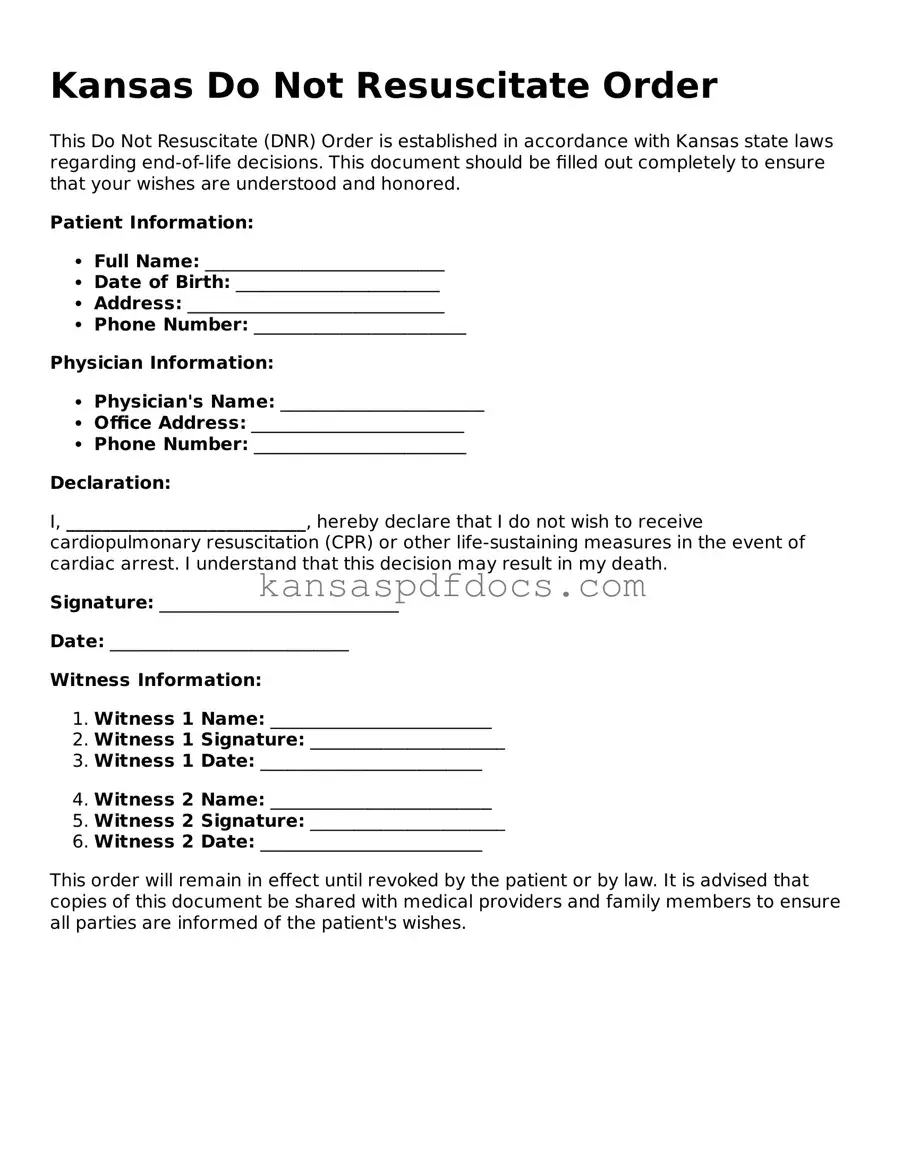Valid Do Not Resuscitate Order Template for Kansas State
A Kansas Do Not Resuscitate Order (DNR) form is a legal document that allows individuals to express their wishes regarding resuscitation efforts in the event of a medical emergency. This form ensures that healthcare providers understand a patient's desire not to receive life-saving measures, such as CPR, if their heart stops or they stop breathing. By completing a DNR, individuals can maintain control over their medical treatment and ensure their preferences are respected during critical moments.
Access This Form Now

Valid Do Not Resuscitate Order Template for Kansas State
Access This Form Now
Your form isn’t ready yet
Edit and finalize Do Not Resuscitate Order online without printing.
Access This Form Now
or
Get PDF Form
